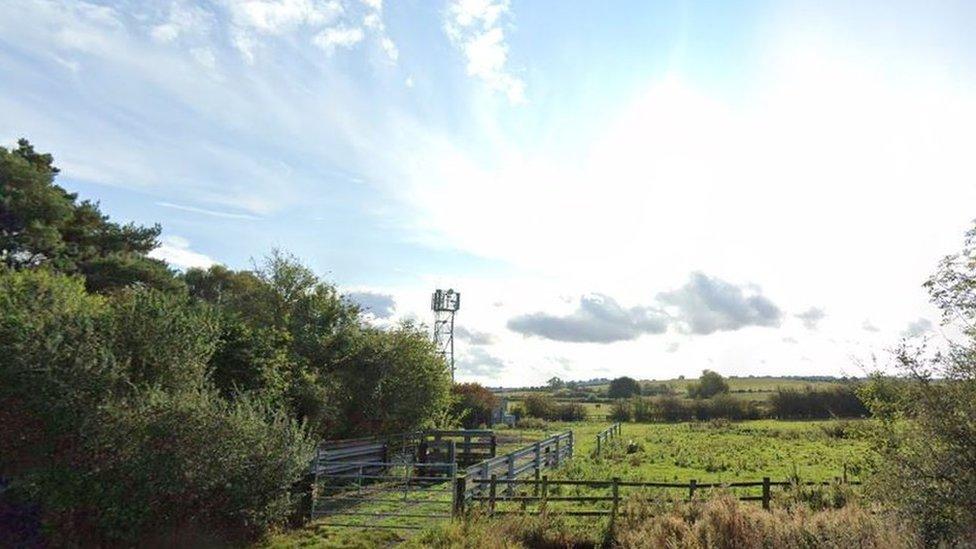Great Bowden: Green energy plans for disused mushroom farm
- Published

The abandoned mushroom farm has been the location for illegal raves, an application said
A disused mushroom farm that has been used for illegal raves could be used to produce green energy under new plans.
An anaerobic digestion plant would be built at Marigold Farm, off Welham Way, near Great Bowden, under the proposals.
The factory would turn chicken manure into gas, which would be piped to the National Grid, applicant Great Bowden Green Energy Ltd said.
However, Harborough MP Neil O'Brien said the mushroom farm was the wrong place for the plant.
The plans, submitted to Leicestershire County Council, said the new facility would help bring Marigold Farm back into use.
According to the application, the site would be an anaerobic digestion plant, which facilitates the fermentation of raw materials, or feedstock, in a large, airtight tank to create biomethane and CO2.
In this instance, the applicant is proposing to use a mix of poultry manure, straw and maize to create gas, which would be transported via pipes to the main National Grid pipeline, removing the need for it to be taken away by tankers.
CO2 would be "used in the food and drink industry", but no further details were given in the application documents, the Local Democracy Reporting Service reported.
MP voices concerns
However, some have raised concerns about the proposed location of the plant.
Mr O'Brien said: "Where such things have been built elsewhere in the country, there have been problems with bad smells for nearby residents, and I know a number of residents in Great Bowden are concerned about that too."
He has launched a petition on his website against the plan and is calling on residents to sign it.
Great Bowden Green Energy Ltd said there would be a maximum of 52 two-way heavy goods vehicle (HGV) movements per day - 26 in each direction - during the busiest 30 days of the year.
For the rest of the year, there would be around 22 two-way HGV movements per day.
The applicant said the fermentation process itself would create no odour as it needed to be done in the absence of oxygen.
Amendment 22 January 2024: This story has been updated to include additional detail on the proposed number of heavy goods vehicle movements.

Follow BBC East Midlands on Facebook, external, on X, external, or on Instagram, external. Send your story ideas to eastmidsnews@bbc.co.uk, external.